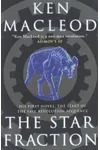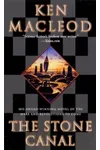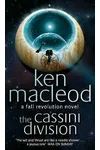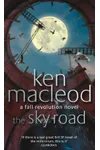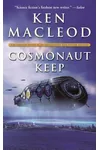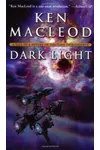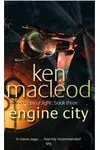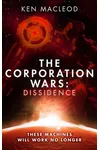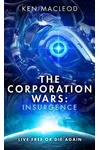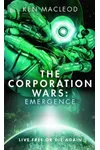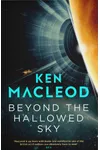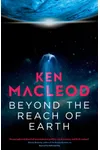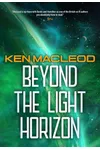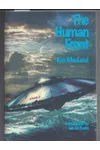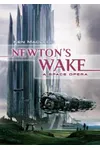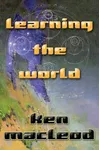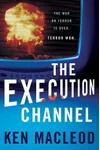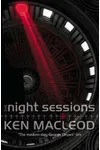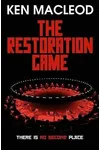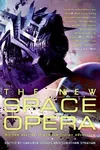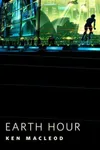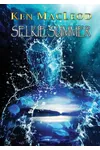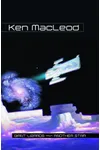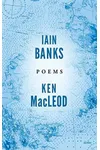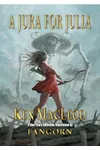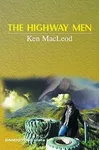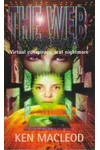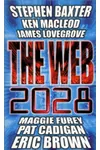Picture a Scottish storyteller who weaves hard science with political intrigue, crafting futures that make you think—meet Ken MacLeod! Born in Stornoway, this award-winning science fiction author has captivated readers with novels like The Star Fraction and Cosmonaut Keep, blending socialism, artificial intelligence, and interstellar adventures into thrilling narratives.
With a knack for turning complex ideas into page-turners, MacLeod’s work challenges us to ponder technology’s impact on society. His unique mix of zoology expertise and Trotskyist roots adds depth to his techno-utopian visions. Ready to explore the mind of a sci-fi visionary? Let’s dive into his story!
The Making of Ken MacLeod
Kenneth Macrae MacLeod was born on August 2, 1954, in Stornoway, Scotland, on the Isle of Lewis. Growing up in a Free Presbyterian community, he moved to Greenock at age 10, encountering a broader world that sparked his curiosity. At Glasgow University, he earned a zoology degree in 1976, later working as a computer programmer and writing a master’s thesis on biomechanics. His political activism as a Trotskyist in the 1970s and 1980s shaped his worldview, infusing his writing with socialist and libertarian themes. Inspired by sci-fi novels like Alan E. Nourse’s Rocket to Limbo, MacLeod began crafting his own stories, becoming a full-time writer by 1997.
Ken MacLeod’s Unforgettable Stories
MacLeod’s novels are a playground of ideas, blending hard science fiction with political theory. His debut, The Star Fraction (1995), kicks off the Fall Revolution series, set in a fractured 21st-century Britain where a mercenary and a scientist unravel an AI-driven conspiracy. It’s a whirlwind of socialism versus capitalism, earning a Prometheus Award. The Sky Road (1999), another series gem, won a BSFA Award for its alternate-future tale of interstellar choices.
The Engines of Light trilogy, starting with Cosmonaut Keep (2000), takes readers from a socialist USSR to alien worlds, exploring first contact and interstellar trade. Nominated for Hugo and Clarke Awards, it showcases MacLeod’s space opera flair. Descent (2014) shifts gears, weaving flying saucers and passive revolution into a near-future Scottish family saga, proving his versatility. Known for witty chapter titles like “Trusted Third Parties” and puns on socialism and tech, MacLeod’s style is both brainy and playful, appealing to fans of Iain M. Banks and Charles Stross.
His skepticism of strong AI sets him apart from techno-utopians, adding a cautious edge to his visions of cyborgs and singularities. Whether exploring anarcho-capitalism or post-human societies, MacLeod’s stories invite debate, never preaching but always probing how intelligent beings organize themselves.
Why Ken MacLeod Matters
Ken MacLeod’s impact lies in his ability to make sci-fi a lens for real-world questions. His pluralistic approach—sympathetic to socialism yet open to libertarian ideas—creates novels that spark dialogue, not dogma. As a leading figure in the British Boom of the 1990s, alongside Banks and Stross, he’s shaped modern space opera and hard sci-fi. His work, translated widely and celebrated at events like the 2024 Worldcon in Glasgow, inspires readers to imagine radical societies and question technology’s trajectory.
Beyond fiction, MacLeod’s talks at festivals and universities, plus his writing for outlets like The Guardian and New Scientist, amplify his influence. He’s a thinker who makes the future feel urgent and alive, encouraging us to shape it thoughtfully.
- Born: August 2, 1954, in Stornoway, Scotland
- Key Works: The Star Fraction, The Sky Road, Cosmonaut Keep, Descent
- Awards: Three Prometheus Awards, two BSFA Awards, multiple Hugo and Clarke nominations
- Fun Fact: He coined “Webblies” for a programmers’ union, inspiring Cory Doctorow’s novel For the Win
About Ken MacLeod
Snag The Star Fraction or Cosmonaut Keep and dive into Ken MacLeod’s mind-bending sci-fi adventures! Your brain will thank you for the cosmic ride.
